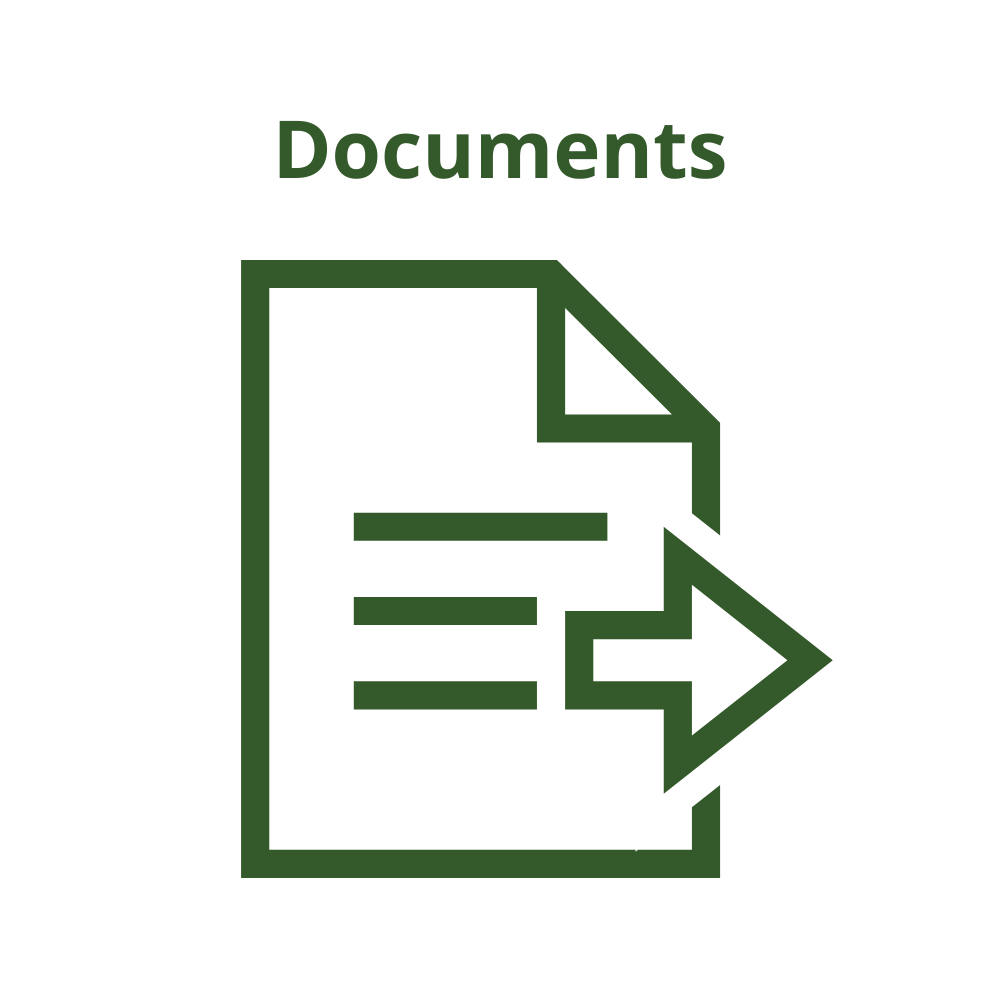MissionGreenFuels Call
Pool 3 - Solutions - call is closed
Application Deadline: October 9, 2024, at 11:59 AM.
Project duration: Minimum 1 year. Projects must end no later than May 2028.
Total budget for this call: Minimum 52 million DKK.
About MissionGreenFuels - Our partnership and roadmap
The MissionGreenFuels partnership was established as a part of the Danish Governments strategy:
“Green solutions of the future – Strategy for investments in green research, technology, and innovation” (September 2020).
The MissionGreenFuels partnership is one of four InnoMissions and focuses on how to fulfil the Danish, European and global climate goals, specifically a 70% reduction by 2030 and net zero by 2050 by decarbonizing the transport, aviation and shipping sector through green fuels. A fundamental governance principle in MissionGreenFuels is a system-wide focus on a portfolio across knowledge domains, actors, sectors, and value chains.
The MissionGreenFuels partnership addresses different technological challenges of green fuels in a focused and coordinated way, using a roadmap to align and guide research and innovation activities, and ensuring knowledge sharing that identifies and builds on synergies whilst avoiding lock-ins.
The vision for the MissionGreenFuels partnership is to contribute substantially to the decarbonization of the transport, aviation and shipping sector and to support Danish research, innovation, growth, job creation and export potential within the field of green fuels.
What is called for?
The MissionGreenFuels partnership invests in ambitious, cross-cutting research and innovation projects that can create new, concrete solutions to issues and challenges towards 2030 and 2050. We seek projects that contribute to the overall MissionGreenFuels vision and roadmap (read it here).
Projects under the following five themes can be applied for:
Expected 3-5 projects with investment 3.5-6 mio. DKK per project.
System integration is pivotal for harnessing the full potential of renewable energy (RE) sources in the future Danish energy system. The transition from fossil fuels to 100% RE introduces challenges and increases the complexity level due to the fluctuating nature of RE. Flexibility is key to accelerate the transition by matching variable energy production with consumption. Flexibility can be delivered by starting and stopping energy producing and consuming units as well as by energy storage such, as batteries, thermal energy storages, gas caverns etc.
Power-to-X (PtX) holds a great potential to deliver flexibility by consuming RE during high production periods and minimizing consumption on calm and cloudy days. PtX fuels (e.g. hydrogen, methanol, ammonia etc.) are efficient storage and transportation media in comparison to electricity. Consequently, PtX fuels with low carbon footprints can profoundly decarbonise hard-to-abate sectors including heavy transport, aviation and industry.
To realise the flexibility potential both PtX plants and the associated energy infrastructure must be designed and optimized for flexible operation without deteriorating the lifespan and performance of the components. This calls for optimization work on electrolysis and catalysis units, intelligent control management and flow measurements, more flexible and intelligent storage solutions under varying pressure conditions, and flexible off-taker markets of all output streams. It is essential to maximize the energy efficiency and reuse/recycling of PtX materials, which also can improve lifespan and business case.
We look for innovative solutions that can realize the flexibility potential of PtX with minimal environmental footprint of PtX fuels.
Sustainability must be an integrated part of any system solution. This includes full life cycle assessment of greenhouse gas emissions, environmental impact assessment and adoption of proper suitability criteria impacting solutions. System integration should include sustainability considerations. This theme will also entail stand alone projects focussing solely on sustainability through development, adoption and internationalisation of methods, standards and application.
Expected 1-3 projects with investment 2.6-8 mio. DKK per project.
Many cutting-edge technologies within the green fuel’s domain have reached a commercial level of readiness and is from an overall perspective primed and poised for deployment and implementation when considering the technologies as an isolated matter. But the ecosystem, the value- and supply chains for the deployment, integration and implementation of these technologies are on the contrary defined by a much lower readiness. To reach the ambitious climate goals we need to make green fuels more economically viable and competitive with traditional fossil fuels on the global market. Achieving this goal involves research, innovation, and the development of new technologies and processes to reduce production costs, increase efficiency, and enhance the overall sustainability of these fuels. Such a multifaceted approach is essential to overcome the challenges and complexities inherent in transitioning to cleaner energy sources while remaining globally competitive.
The solutions and technologies within this theme might not be fully mature or economically viable at present but have the potential to become cost-effective and competitive in 2030. It can also be intermediate solutions that allow existing vehicles/fleets to lower CO2 emission for an intermediate period (as these should not be replaced beyond the normal replacement rate).
Emphasis is placed on developing new methods, improving energy efficiency, optimize operation by digitalization, co-locate and integrate PtX plants with renewable energy plants etc., solving challenges related to scaling-up of technologies, refining existing processes, and investing in research and development aimed at making green fuels more economically competitive in 2030 in international context.
Expected 1-3 projects with investment 2.6-8 mio. DKK per project.
To reach our long-term climate goal in 2050 involves a proactive forward-looking, strategic, and visionary approach. It involves sustained and continued research, innovation, and the development of new technologies and processes while enhancing the overall sustainability of these fuels.
In this theme, we are not just looking for incremental improvements. We are seeking ideas that could change the way we produce and/or use green fuels in the future. We believe that by the time we reach the year 2050, green fuels should not just be merely competitive with fossil fuels; they should surpass them in terms of efficiency, affordability, and their overall environmental impact. Such a transition is vital for the vision of a future where industries are powered by clean, abundant, and renewable energy sources, and where transportation is carbon neutral.
The solutions we look for are truly groundbreaking and visionary innovations that might be in the early stages of development, encompassing next-generation materials, advanced processes, cutting-edge components, digital control and management, compositions, new methods for reusing and recycling of materials/units, inventive system design, membranes, new ways of making electrolysis, or innovative methods for green fuel production, potentially skipping steps in the production chain. The solutions should resonate in context of the global transition.
We encourage collaborations and embrace collaborations that bridge diverse disciplines, industries, and borders. We seek innovative and visionary proposals that go beyond the ordinary, pushing the boundaries of conventional knowledge and challenging the norms of what’s possible. Our aim is to find solutions that are not just sustainable but transformative.
Expected 1-3 projects with investment 2-6 mio. DKK per project.
Safety is crucial for successful adoption of green fuel technologies and significantly influences the pace of transitioning to sustainable fuels. It is closely linked to regulations, certifications and standards, necessitating international collaboration for effective implementation. Creating a stable environment for safety initiatives and regulations is key to minimizing risks associated with deploying green fuel technologies as well as public support. Safety regulation of green fuels can build on existing knowledge but establishing new markets in GW scale require new procedures, standards and frameworks.
Green fuels will be able to compete with fossil fuels in the future, but this requires establishing the right regulatory framework for its production, transport, storage, and use, with safety being paramount throughout the value chain. Hence, it’s urgent to proactively develop safety measures and regulations to ensure a safe and fast implementation and deployment of green fuels in society.
Approval procedures and safety certifications are complex, often complicating the establishment of green fuels production plants. The complexity of legislation creates uncertainty among both investors and authorities, causing delays in green fuels plant construction. Also, the utilisation of green fuels requires regulations, that stimulate CO2 reductions and make green fuels attractive for the end-users (e.g. taxes, subsidies or other regulations)
Moreover, to establish a functional global green fuels market, it is crucial to establish a legal framework and consensus for when a carbon-based green fuel and CO2 is considered green.
This theme seeks solutions related to safety and regulations in a research and innovation context that are or will negatively impact the introduction and use of green fuels, hereunder market changes that ensures long-term investments. Solutions must go beyond Danish borders.
Expected 2-4 projects with investment 3-6 mio. DKK per project.
A key part of adopting green fuels over fossil fuels is converting them into energy efficiently and in a manner that is both safe and environmentally friendly. Direct electrification should be first choice, when possible, but not all sectors can be directly electrified, such as aviation and shipping, where there will still be a need for fuels in the future. Furthermore, there is a need for retrofitted engines for intermediate greener fuels, that allow existing vehicles/fleets to lower CO2 emission for a period, as it should not be replaced before its end-of-life.
Green fuels can have different properties than traditional fossil fuels, requiring modifications to existing engines or the development of new engine technologies to ensure compatibility and optimal performance.
Green fuels often have lower energy density compared to conventional fuels, potentially leading to reduced engine efficiency and mileage. Engine designs need to compensate for these differences to maintain performance levels. There might be challenges related to low-temperature performance, such as freezing in cold climates, requiring modifications or additives to ensure engines operate smoothly in varying weather conditions.
Other challenges are the longevity of engines, increased corrosion and wear in engine components, necessitating new materials and lubricants tailored to mitigate potential damage to the engine.
Furthermore, there are complexities of dual-fuel systems and blending techniques concerning calorific value, soot formation, and other factors that influence widespread adoption of green fuels.
Green fuels have properties such that they compete on global markets.
We seek innovative ideas that address challenges related to test and efficiency for both new (e.g. NH3) and retrofitted engines. Our focus is new methods for modelling, forecasting, controlling, and optimizing engines running on green fuels.
Who can apply?
 Projects should include at least one organization which is part of the MissionGreenFuels partnership. Eligible organizations are research institutions or private/public institutions in or outside Denmark, directly involved in the project activities.
Projects should include at least one organization which is part of the MissionGreenFuels partnership. Eligible organizations are research institutions or private/public institutions in or outside Denmark, directly involved in the project activities.
Any Danish or international legal entity, directly involved in the project activities, is eligible to apply to participate in and receive funding. The legal entity acting as main applicant should have a Danish CVR number.
To receive funding from MissionGreenFuels you must be a partner in the partnership.
Organizations not a part of MissionGreenFuels can request to join here.
What and how much can be applied for?
Total budget for this call is minimum 52 mio. DKK conditioned by sufficient quality within the field of applications. Investment per project ranges from 2-8 mio. DKK, see details for each theme.
MissionGreenFuels covers a maximum of 75% of the total project cost. Applicants must ensure that each partner follow the rules for maximum investment rates as detailed in the guidelines for InnoMission projects (see guidelines here).
The MissionGreenFuels partnership does not accept applications where a successful outcome is dependent on receiving additional funding for further research and development (e.g. projects that involve financing in multiple phases).
The same project cannot apply for funding in both this call and pool 2.5.
Co-financing of salaries and other expenses that are directly linked to the implementation of the project can be included in the budget.

Deadline for application: at 11:59 AM on October 9, 2024.
Expected response date: End of December 2024.
Expected earliest launch date: Q2, 2025.
Evaluation criteria
All applications will be evaluated on:
- Quality of the idea – the quality of the research and innovation
- Impact – value creation during and after the project
- Quality of execution – efficiency in the project execution and the implementation of the results
A detailed description of these criteria can be found in the assessment criteria document below. International peers will evaluate these criteria.
4. Strategic fit to the MissionGreenFuels vision and roadmap
Applications will be evaluated by the MissionGreenFuels Board of Directors regarding the strategic fit to the MissionGreenFuels’ vision and roadmap (please make sure to address this in the application in section 4 “Strategic fit to MissionGreenFuels vision and roadmap”).
Criteria 4 includes (but is not limited to) that the project:
- clearly contributes to creating societal value and value for the MissionGreenFuels partnership
- describes clearly the direction towards the Danish 2030 and/or 2050 climate goals, i.e. total time horizon and investment need for the potential CO2 reduction and long-term plan for the proposed solution
- contributes to maturing the entire Danish value chain
- clearly describes how the project fits into the EU legal framework
- can be scaled internationally
- contributes to CO2 reduction, job creation in Denmark and export potential
- contribute to lowering overall system costs in the production, distribution, and utilization of green fuels.
Evaluation process
Applications must be submitted via “Filkassen”. The call opens in August, 2024.
Criteria 1-3 will be evaluated by at least two international external experts. Criteria 4 will be evaluated by the Partnership Board of Directors. Please notice that criteria 4 is crucial for the evaluation and poor evaluation of this section alone can decide whether the applicant will receive funding or not.
Before proposals are subjected to review by external experts, the Partnership Director will ensure that the proposals comply with the formal requirements described in the call text. Applications which do not comply with the requirements will receive administrative rejection before subjected to external review.
Projects with the highest total score from the international peer reviews, will be evaluated by the MissionGreenFuels Board of Directors. If there are 30 applications or more, a number of applications that fits 3x the size of pool 3 (3×52 mio DKK) will be evaluated by the Board of Directors, however, at least five applications from each theme will be evaluated, if possible. If fewer than 30 applications are received, all will be evaluated by the MissionGreenFuels Board of Directors.
The members of the Board of Directors can be found here. Applicants are asked to indicate whether they see any conflict of interest with any of these.
It is expected that the project applications will receive either invitation for investment negotiations or a rejection of the application in December 2024, after which the investment negotiations can be initiated with an expected project start in Q2 of 2025.

Application documents
- Application template please save the file as MGF_pool3solutions_[project name]_[name of applicant]
- Budget template
- Appendix A – Figures, pictures, tables
- Appendix B – Partner motivation
- Appendix C – Key persons
- Appendix D – Gantt template
Link to relevant documents
Want to know more about our calls?
Through the MissionGreenFuels partnership, Energy Cluster Denmark and DaCES are organizing a webinar and several workshops to support the development of project ideas among the participants.
Find information about the events and register here.
Contact information
Please visit our Q&A page for overall questions about the calls.
For any further questions, please contact the MissionGreenFuels secretariat at missiongreenfuels@aau.dk.
Disclaimer
MissionGreenFuels has not yet received the contract from the Innovation Fund Denmark regarding this call. In the unlikely event that we cannot reach to an agreement, we reserve the right to withdraw the call text and announce a new one as soon as possible thereafter.

